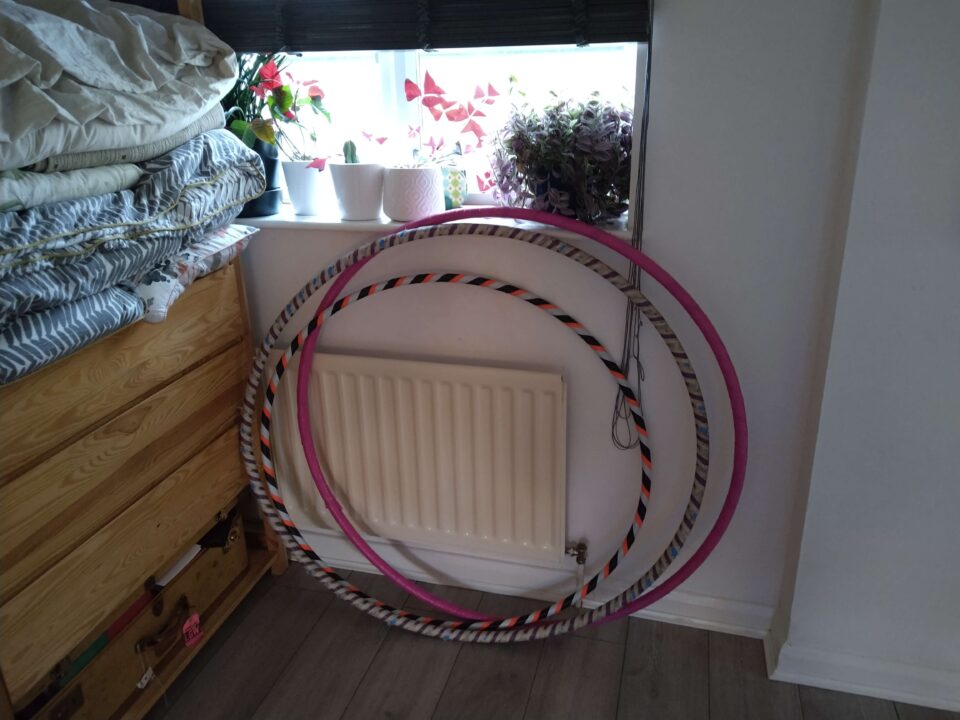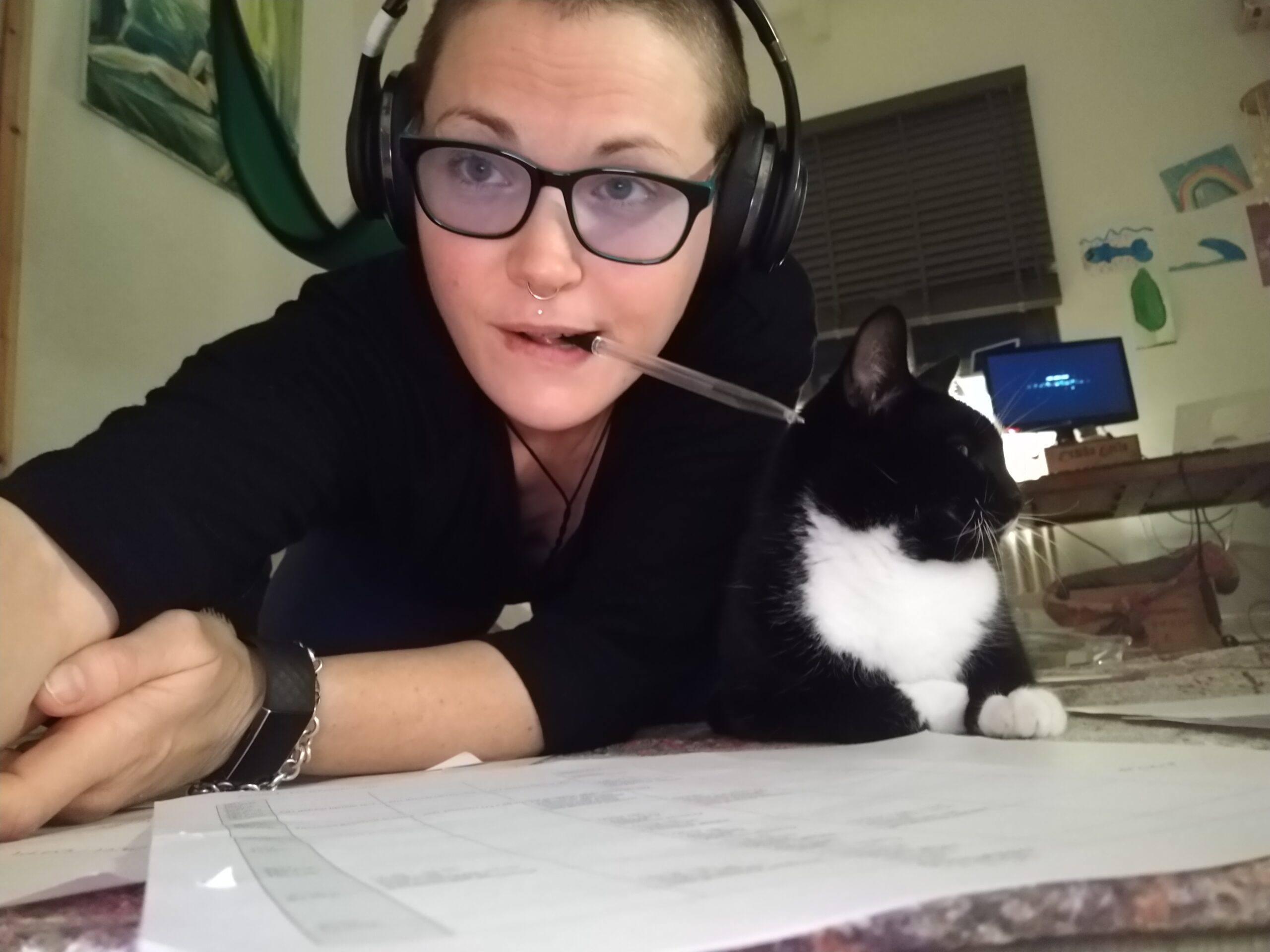Last time I posted I wrote about my overall experiences of using space more flexibly; a process I have undertaken since we moved house and into a new property that was slightly smaller than our last home. The walls were a lot higher, so it gave me an opportunity to think about how we use space and how to use it to better effect. Originally, we built up, utilising higher storage options and creating a bespoke bunk bed for my son out of reclaimed scaffolding planks to give him full access to the floor space in his room.
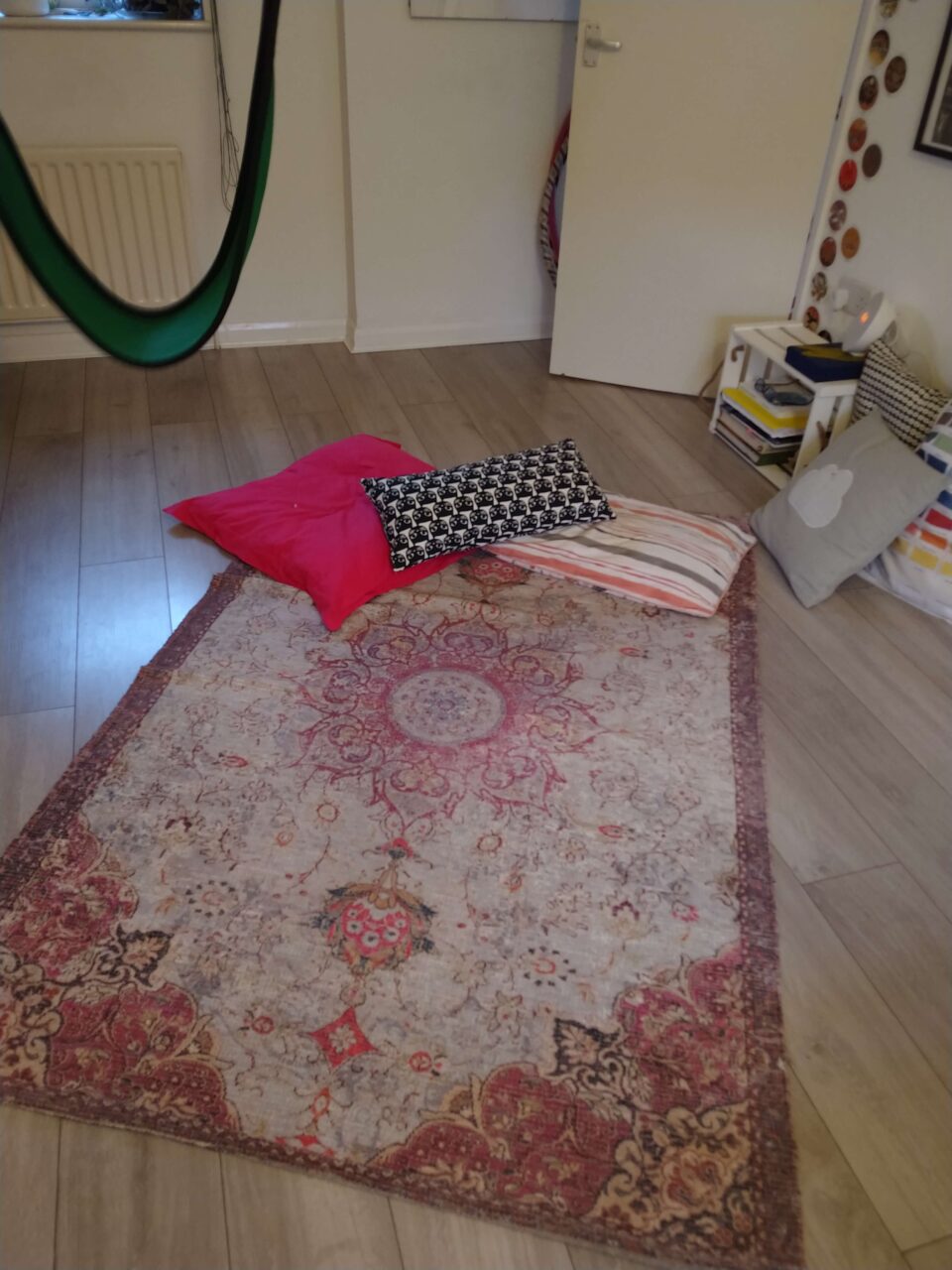
Most recently I have moved away from the idea of different rooms have a designated purpose, often assigned by the type of furniture in it. Houses have bedrooms, with beds in, kitchens and bathrooms, (whose function we can’t really move away from), but otherwise part of the consumption driven approach to housing in capitalist societies is to keep buying a bigger house with extra rooms, all with a designated function. Therefore you end up with a couple living in a five or six bedroom property, with a games room, laundry room, lounge dining room and mud room for example.
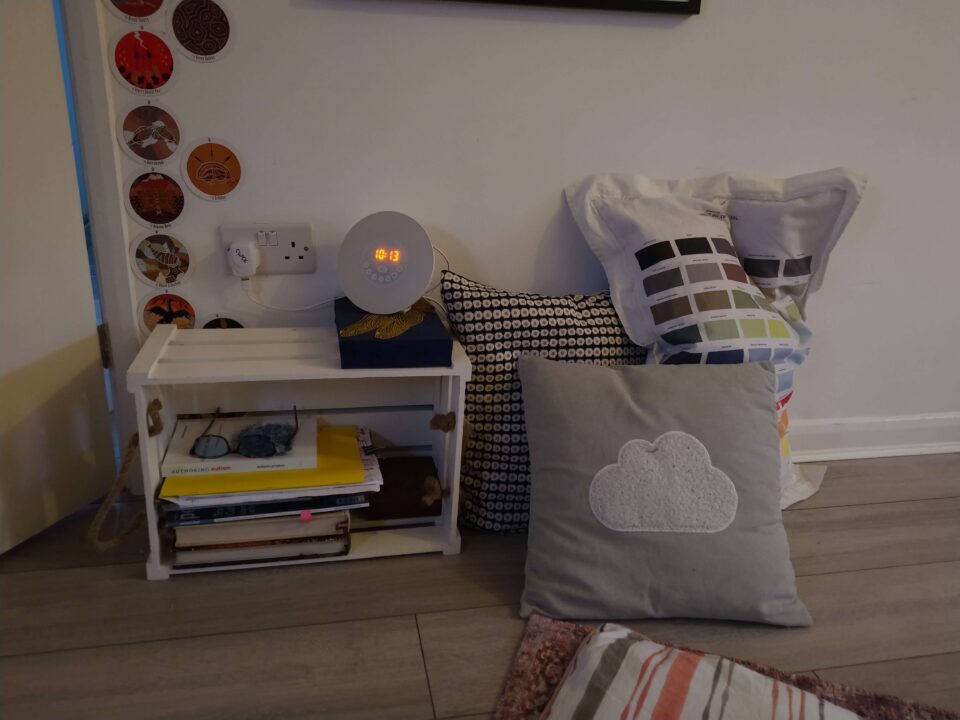
We’ve made the choice to use our home more flexibly. We have our television in one of our bedrooms, whose occupant prefers to watch this to relax and so the TV did not dominate the living space downstairs and overall layout options available within it. As a family most of our living takes place upstairs, but our son was struggling with a lack of space in his bedroom to play in, so he ended up with what would traditionally be the lounge/diner as a play room. In the future, this space may well be converted into a bedroom as well. Given we have multiple family members on the spectrum, personal space for downtime, hobbies and special interests is more important to us all that a space for collective socialising. The one bugbear at the moment is a dining space. I’m not happy without, one but other family members don’t feel they could manage with eating upstairs converting the smallest current bedroom. I guess that time will tell what the greater need will end up being.
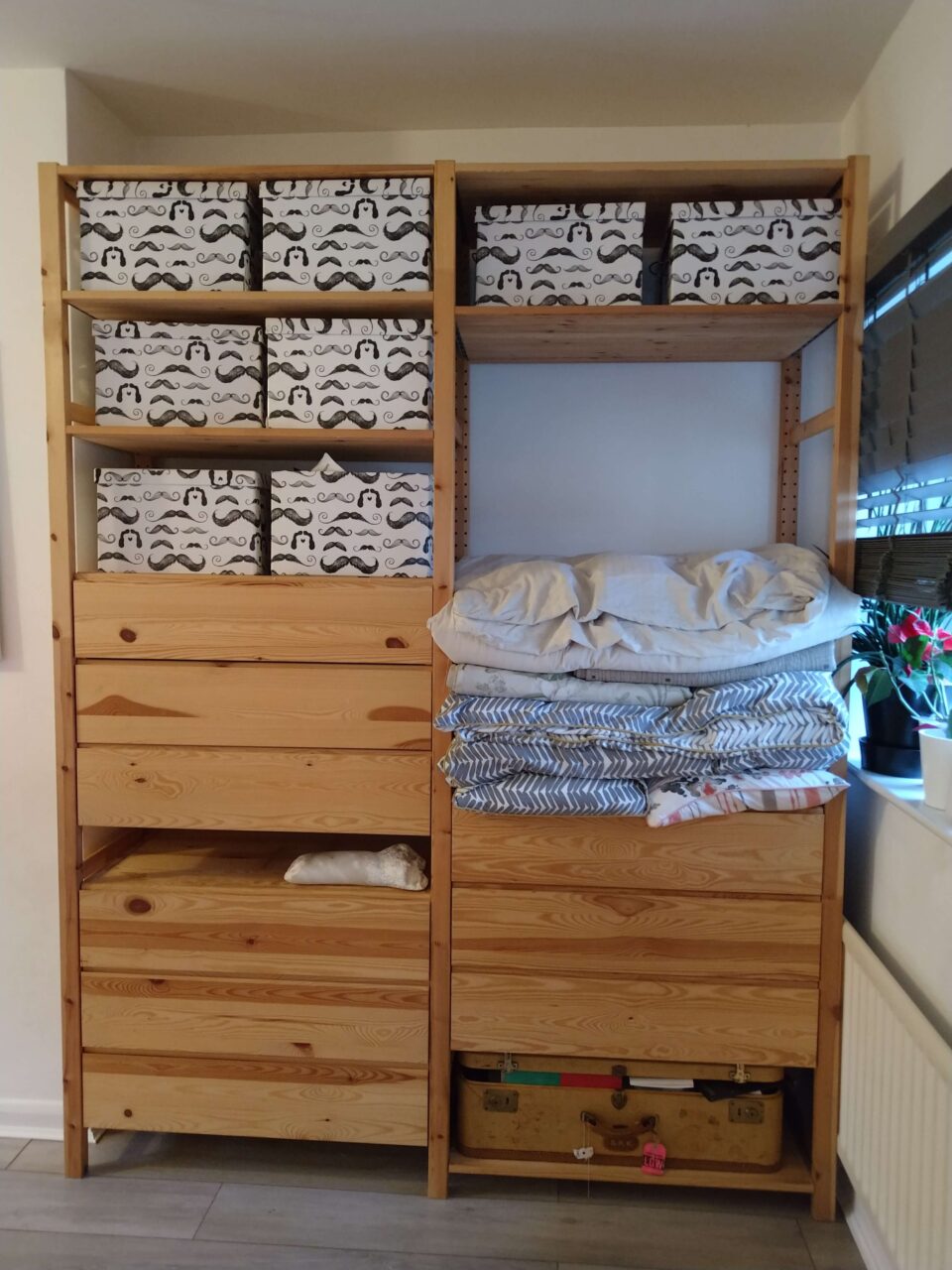
Within my own personal space I have embraced the idea of furniture free living quite radically and have found it to be a great release from constraint. The space taken up by a bed is massive in terms of the lost opportunity to move and play in different ways.
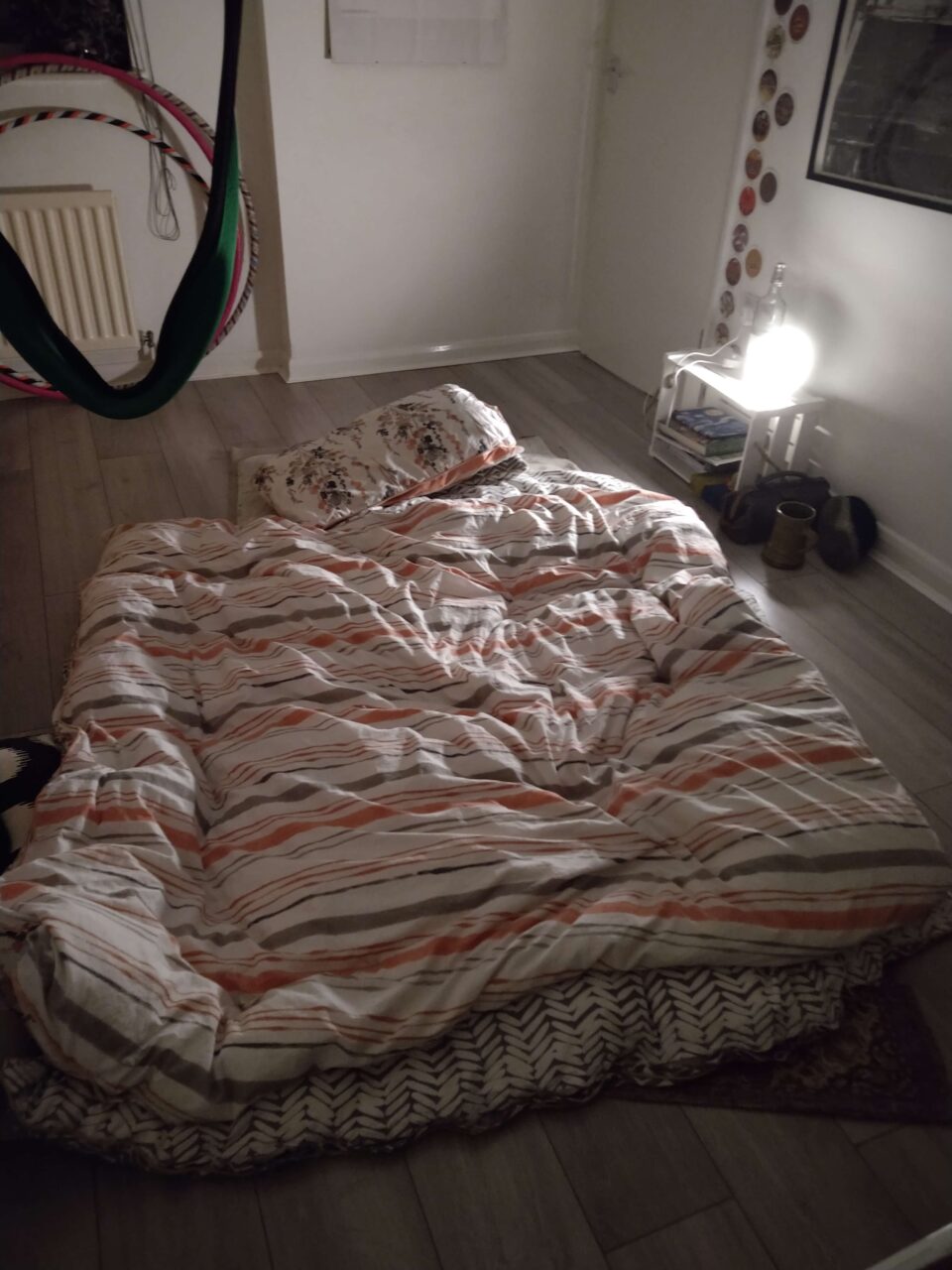
At the moment I have got rid of my bed, choosing to sleep on the floor Japanese style instead. My desk and kneeling chair has gone and has been replaced with a squatting desk and winebox stool. The main pieces of furniture in my living space comprise of storage, a really important feature given that the benefits of using space flexibly are maximised when things are packed away and not left around the room.
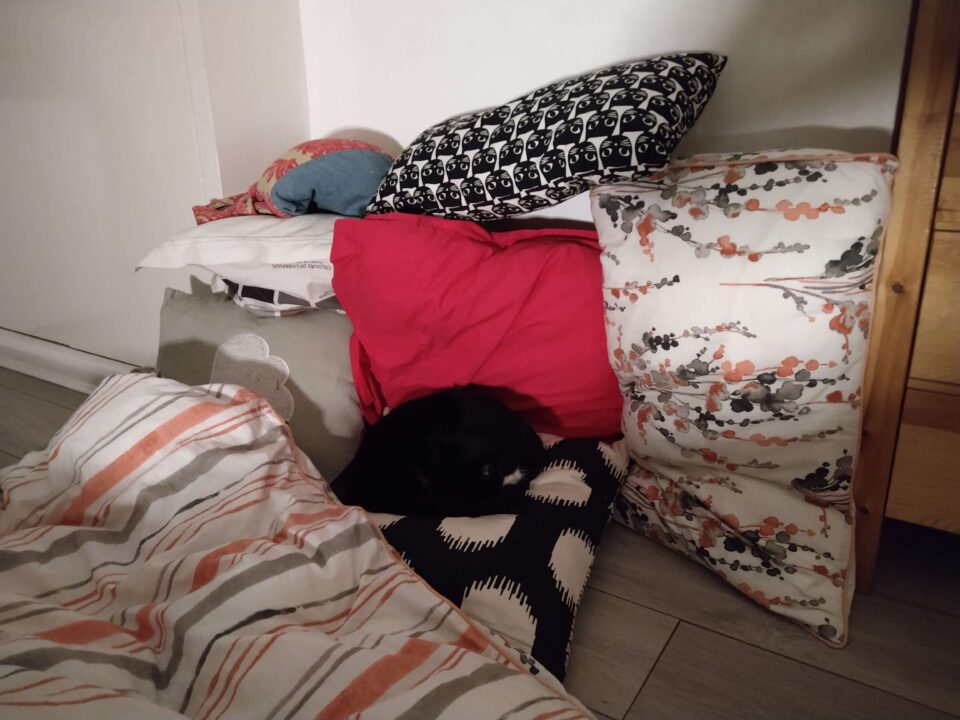
Instead, the new room we gain becomes an exercise and rough-play gym, sleepover space, hooping studio and sensory playroom. Toys and props are left around as provocations for movement and we have a range of accessories to use with our ceiling anchor points which are invaluable for sensory breaks in winter when the weather is crap. Side tables are made from wooden crates which can be moved about to accommodate a whole range of activities as well as stacked to add a degree of novelty as moods change. Rugs and cushions make using the room during the day more comfortable whilst still gaining the benefit of different opportunities for the body to move and be used in many ways. Simply banning chairs and other furniture which only allow the body to lower to thigh height makes such a difference in terms of flexibility and muscle strength. I’m also pleased that my son is adopting some of these changes, such as sleeping on his own floor at times. Not only do they bode well for his future health, but can make a real difference in the perception of what is ‘needed’ and what is optional across a life time of buying things, or not as the case may be.
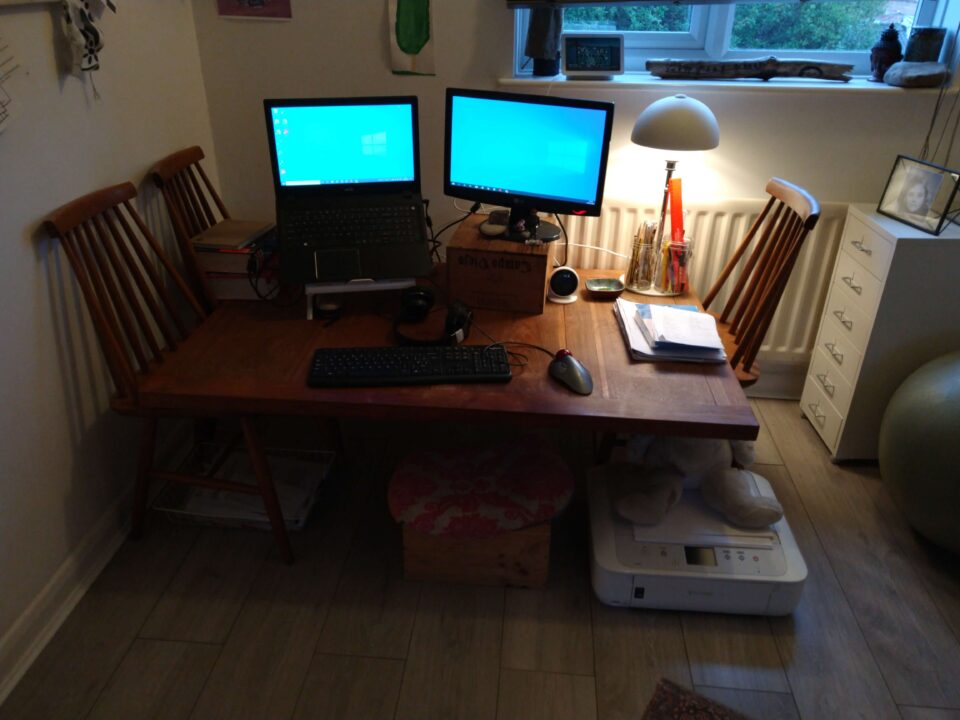
I am finding that I am getting healthier the older I get, mainly by removing many of the trappings of wealth and convenience we indulge in, in western cultures. I’m thinking about writing about these in the coming weeks, as lockdown challenges me to think differently about my life and space.
